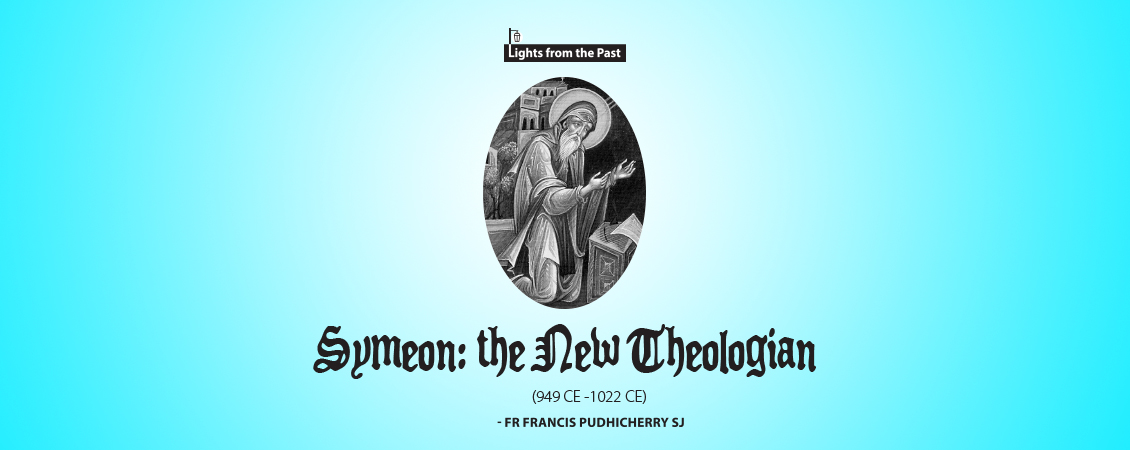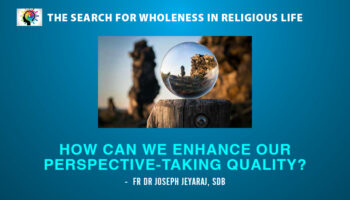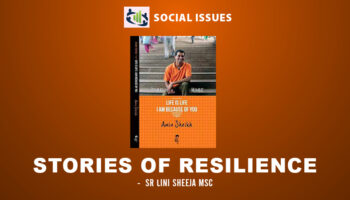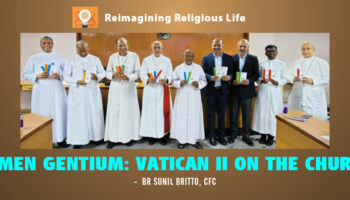How to integrate theology and spirituality
“The Holy Spirit regenerates you, it changes you from corruptible to incorruptible, from mortal to immortal, from sons of men into Sons of God and gods by adoption and grace.” (Discourse XXXIII)
What is Theology? Is it an abstract, philosophical speculation or a mystical and intense personal experience? The tension between these two tendencies would characterize the life and times of Symeon the New Theologian, a monk from Asia Minor. The period he lived saw, on the one hand, the emergence of ‘scholastic’ theology—a theology strongly influenced by philosophical categories and encouraged by Stephen of Nicomedia—as against an integrated experience of theology and actual spiritual life as seen in the mystical theology promoted by Symeon the New Theologian.
Symeon was born in Galatia (Asia Minor) and belonged to the Byzantine nobility. He studied basic Greek in school until he was eleven years old and pursued higher studies in the court. At the age of fourteen, he met his spiritual father Symeon of Studite, a very holy monk. Though the young Symeon wanted to join the monastery without any delay, the senior Symeon made him wait until he reached the age of twenty-seven years. During this period, he served the emperor as a diplomat and a senator. Despite a hectic life, his interior life was one of vigils, prayers and austerities. His first years as a zealous monk did not go well with other monks, who had fallen into decadence and in a short time he was forced to move to the monastery of Saint Mamas. Here he received the tonsure, was ordained a priest and elected abbot over the monks. He would spend twenty-five years at this monastery and make it truly an outstanding place. However, he faced opposition from Archbishop Stephen who ensured that Symeon was sent into exile in 1009. There he lived a life of simplicity and solitude in a small chapel dedicated to Saint Marina. Patriarch Sergios revoked the exile and offered him the ecclesiastical office of archbishop. He refused this invitation and continued to write and be a spiritual guide to others until his death in 1022. His important works include the Discourses, Theological Treatise, Hymns of Divine Love and various Letters.
Symeon was convinced of the primacy of personal experience and stressed that grace or the indwelling of the Trinity could be experienced by all persons. In keeping with tradition, he also believed that non-ordained persons could forgive sins. The ecclesiastical authorities did not fully approve of these views. But, going beyond the conflicts, we find two important spiritual themes recurring in his writings. The first relates to the need of asceticism and penance in spiritual life. This was uncomfortable for monks who had entered a life of comfort and decadence. He emphasized repentance, detachment, sorrow, works of mercy, charity, the practice of the commandments and so on. However, what sets him apart from others is the pre-eminent position given to the Holy Spirit in the life of a person. All Christians need to go through a second Baptism, which Symeon calls a baptism of the Holy Spirit. One who has experienced repentance and undergone a conversion will have a growing conscious awareness of Christ as one’s Lord and Saviour. In Discourse XXXIV he explains that the indwelling of the Trinity is possible and should be sought after by every Christian as the true goal of life. One is invited to go beyond an intellectual knowledge of the Holy Spirit to actually be ‘consciously aware’ of this presence through continual conversion. Unfortunately, the efforts of Symeon would not stop the separation between theology (understood strictly as a science) and spirituality. Centuries would go by and only in the 20th century would there be any serious attempt at re-integrating theology and spirituality.
Fr Francis Pudhicherry SJ
To subscribe to the magazine, click Subscribe





